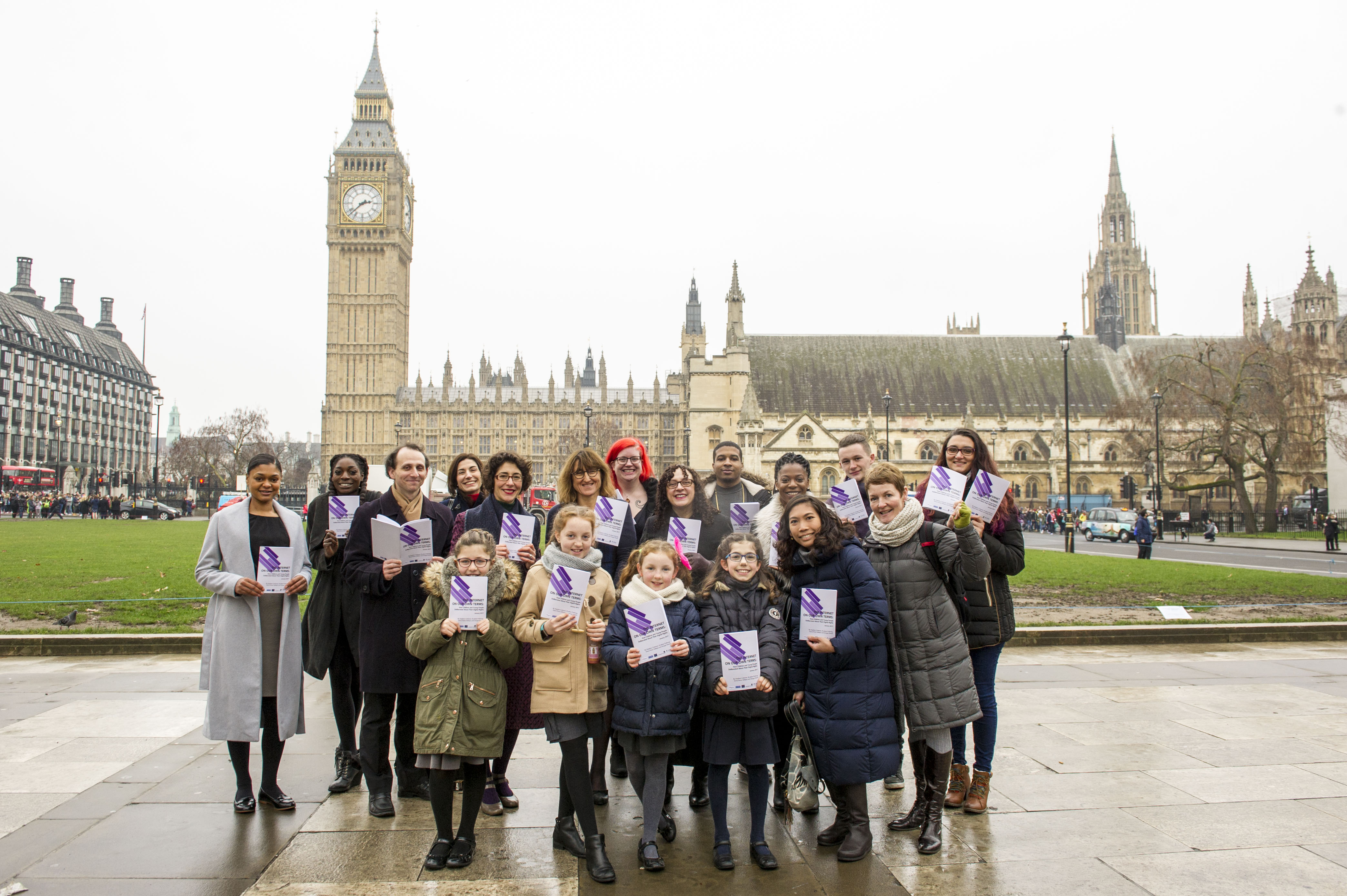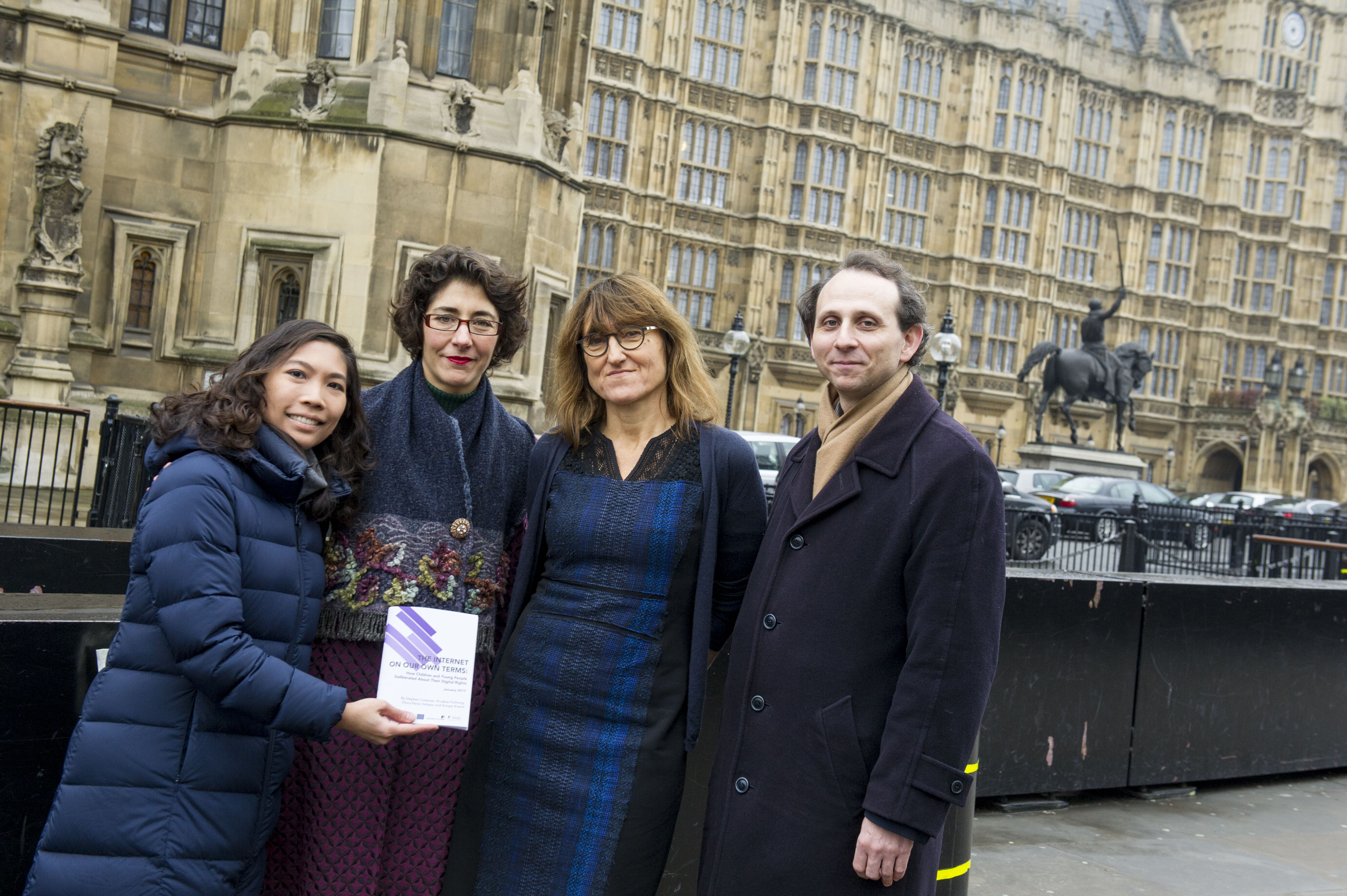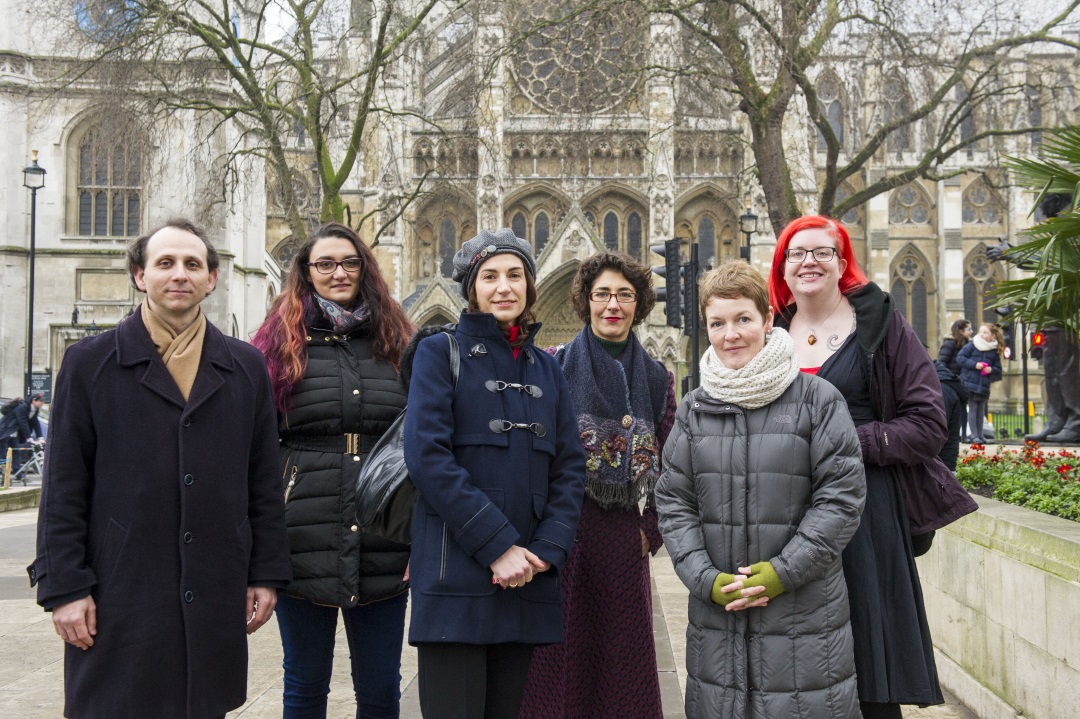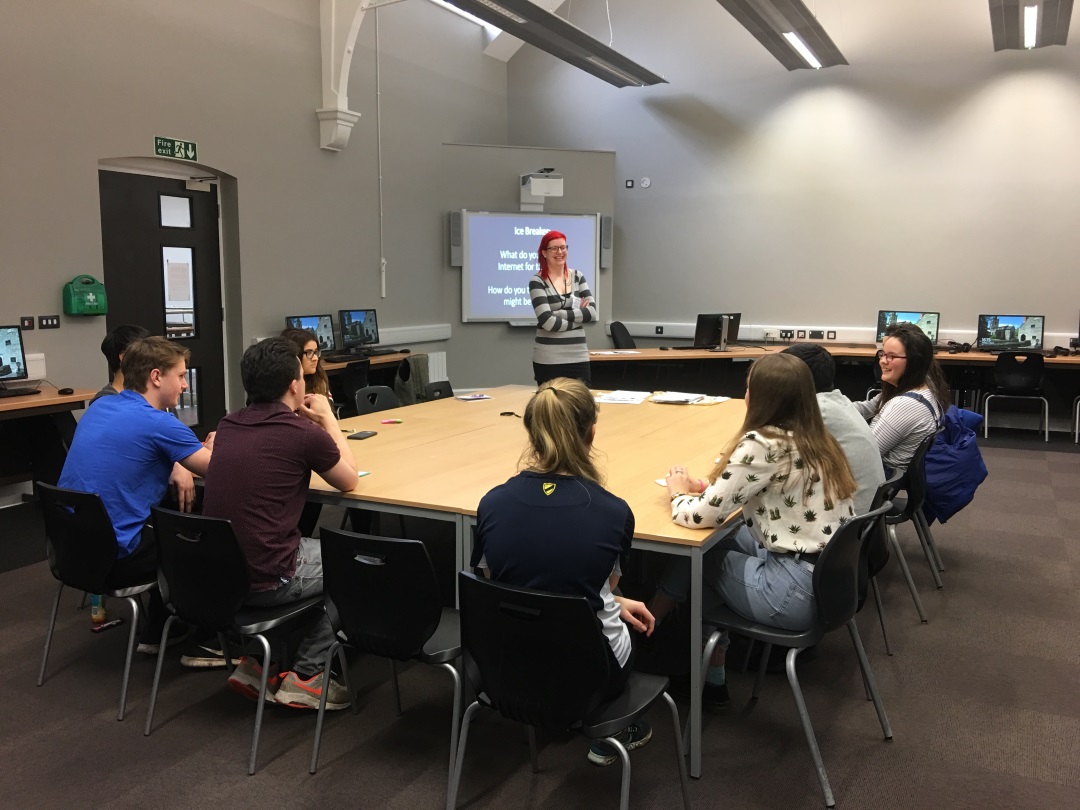Can we trust what we see online?
Websites use algorithms to recommend music, TV and films that you’ll enjoy. But they could also be manipulating us and hiding the truth. Dr Elvira Perez Vallejos from the University of Nottingham is examining how technology can be made more trustworthy
How do these recommendations work? They’re constructed using algorithms – sets of instructions that tell computers what to do. Algorithms can tailor recommendations to your personal taste by using sophisticated artificial intelligence (AI) software. The recommendations aren’t always perfect, but the machines learn and get more accurate over time.
Making these algorithms trustworthy and fair is the goal of Dr Elvira Perez Vallejos, Associate Professor of Digital Technology and Mental Health at the University of Nottingham. Elvira is involved in a project called ReEnTrust: Rebuilding and Enhancing Trust in Algorithms.
ARE ALGORITHMS A GOOD THING?
If they help you find more good music, movies and TV, then yes! But they’re also used to decide which stories we see on social media. Those stories might be biased in favour of a certain company or individual, or they might even be fake news! How can we tell if algorithms have been designed to manipulate us? How do we know that the information we see is accurate and fair? “If you aren’t exposed to challenging views that contradict your own, you end up with a ‘bubble effect’ that prevents you from being exposed to other opinions,” says Elvira.
CAN ALGORITHMS “SPY” ON US?
New technologies like AI and machine learning are harnessing more data about us than ever before. We agree to give away this data when we accept the terms and conditions after downloading an app. It’s not surprising that few people read these terms and conditions because they’re so long! According to Elvira, the danger is that the data will be used to predict your behaviour – and not always in a good way. “It could be used to manipulate people’s opinions, let them only apply for specific jobs or prevent them being able to access health insurance,” she explains.
HOW WILL REENTRUST HELP?
Elvira and researchers at the universities of Nottingham, Oxford and Edinburgh will carry out experiments with a specially designed online tool. The tool will allow users of various platforms to say how much they trust what they’re presented with. The results will be discussed with the companies behind the platforms in an effort to make algorithms more trustworthy and to make it easier for users to understand how their data is used. Ultimately, the research could lead to a “trust index” of platforms to make their trustworthiness clear to everyone. Elvira says: “We are trying to provide people with tools that give them more control over the information they consume. There will be options and settings that give users a greater or lesser degree of personalisation.”
The project will also look at whether the government should bring in new rules for the companies behind digital platforms. It will do this by gathering opinions at “youth juries”, workshops at which young people are invited to discuss online platforms. These will follow a similar format to Elvira’s other studies: information about which can be found on the Horizon website. At the workshops, 16-25-year olds will share their experiences of searching for information, making bookings and buying products online. Elvira and her colleagues will then discuss the findings of the workshops with policymakers, as she explains: “We’ll create a direct channel between young people and those who work in central government so that their voices can be heard.”
 DR ELVIRA PEREZ VALLEJOS
DR ELVIRA PEREZ VALLEJOSAssociate Professor
Digital Technology and Mental Health, Faculty of Medicine & Health Sciences University of Nottingham, UK
FIELD OF RESEARCH: Digital Technology and Mental Health
RESEARCH PROJECT: ReEnTrust: Rebuilding and Enhancing Trust in Algorithms is exploring ways to give users confidence in websites and social media platforms. It will examine how technology can be designed to be more trustworthy.
FUNDERS: ReEnTrust is funded by EPSRC. Elvira also has projects funded by the Research Councils (UKRI/ESRC, AHRC, EPSRC), and internal funding via Global Challenges Research Fund and NIHR Biomedical Research Centre Mental Health.
Can using your phone affect your mental health? It’s often said that too much screen time is a bad thing, and some scientific research suggests that’s true. The precise nature of what you see on social media can also change how you feel. But on the flipside, phones and social media have positive benefits. Part of Elvira’s research involves looking at whether the design of online platforms can affect your state of mind – for better or worse.
WHY DO WE SPEND SO MUCH TIME ON SOCIAL MEDIA?
Partly because we enjoy it! But there’s no doubt that social media and other apps are designed to make us want to use them for longer. The choice of colours, notifications, and “likes” all make social media a habit- forming activity it’s hard for many people to break. A small number of people may even be diagnosed with social media addiction by their doctors. Elvira is interested in looking into designs that give users more control over their use of the internet.
WHAT ARE THE POSSIBLE NEGATIVE EFFECTS?
Reference
https://doi.org/10.33424/FUTURUM21
Can we trust what we see online?
How do these recommendations work? They’re constructed using algorithms – sets of instructions that tell computers what to do. Algorithms can tailor recommendations to your personal taste by using sophisticated artificial intelligence (AI) software. The recommendations aren’t always perfect, but the machines learn and get more accurate over time.
Making these algorithms trustworthy and fair is the goal of Dr Elvira Perez Vallejos, Associate Professor of Digital Technology and Mental Health at the University of Nottingham. Elvira is involved in a project called ReEnTrust: Rebuilding and Enhancing Trust in Algorithms.
ARE ALGORITHMS A GOOD THING?
If they help you find more good music, movies and TV, then yes! But they’re also used to decide which stories we see on social media. Those stories might be biased in favour of a certain company or individual, or they might even be fake news! How can we tell if algorithms have been designed to manipulate us? How do we know that the information we see is accurate and fair? “If you aren’t exposed to challenging views that contradict your own, you end up with a ‘bubble effect’ that prevents you from being exposed to other opinions,” says Elvira.
CAN ALGORITHMS “SPY” ON US?
New technologies like AI and machine learning are harnessing more data about us than ever before. We agree to give away this data when we accept the terms and conditions after downloading an app. It’s not surprising that few people read these terms and conditions because they’re so long! According to Elvira, the danger is that the data will be used to predict your behaviour – and not always in a good way. “It could be used to manipulate people’s opinions, let them only apply for specific jobs or prevent them being able to access health insurance,” she explains.
HOW WILL REENTRUST HELP?
Elvira and researchers at the universities of Nottingham, Oxford and Edinburgh will carry out experiments with a specially designed online tool. The tool will allow users of various platforms to say how much they trust what they’re presented with. The results will be discussed with the companies behind the platforms in an effort to make algorithms more trustworthy and to make it easier for users to understand how their data is used. Ultimately, the research could lead to a “trust index” of platforms to make their trustworthiness clear to everyone. Elvira says: “We are trying to provide people with tools that give them more control over the information they consume. There will be options and settings that give users a greater or lesser degree of personalisation.”
The project will also look at whether the government should bring in new rules for the companies behind digital platforms. It will do this by gathering opinions at “youth juries”, workshops at which young people are invited to discuss online platforms. These will follow a similar format to Elvira’s other studies: information about which can be found on the Horizon website. At the workshops, 16-25-year olds will share their experiences of searching for information, making bookings and buying products online. Elvira and her colleagues will then discuss the findings of the workshops with policymakers, as she explains: “We’ll create a direct channel between young people and those who work in central government so that their voices can be heard.”
 DR ELVIRA PEREZ VALLEJOS
DR ELVIRA PEREZ VALLEJOSAssociate Professor
Digital Technology and Mental Health, Faculty of Medicine & Health Sciences University of Nottingham, UK
FIELD OF RESEARCH: Digital Technology and Mental Health
RESEARCH PROJECT: ReEnTrust: Rebuilding and Enhancing Trust in Algorithms is exploring ways to give users confidence in websites and social media platforms. It will examine how technology can be designed to be more trustworthy.
FUNDERS: ReEnTrust is funded by EPSRC. Elvira also has projects funded by the Research Councils (UKRI/ESRC, AHRC, EPSRC), and internal funding via Global Challenges Research Fund and NIHR Biomedical Research Centre Mental Health.
DOES DIGITAL TECHNOLOGY HAVE POSITIVE BENEFITS?
Yes. Online communities can be a good way of talking to other people about mental health. You can access people who can give you support instantly through your phone or computer. Depressed people might not feel up to leaving the house, but they can still send messages. According to the charity Mind, four in five people find it useful to talk about mental health and the internet gives us the opportunity of instantly doing just that. It’s also likely that social media doesn’t affect everyone in the same way. Just as not everyone who plays poker becomes addicted to gambling, social media may not cause you any ill effects.
IS THERE ANY CLEAR-CUT ADVICE ON HOW WE SHOULD USE TECHNOLOGY?
In a word, no. According to Elvira, not enough scientific evidence has been gathered on the effects of the internet on our lives. That’s why, together with her colleagues, she’s developing a way of measuring online wellbeing. It will look at how people feel before and after using the internet for a set period of time.
Can using your phone affect your mental health? It’s often said that too much screen time is a bad thing, and some scientific research suggests that’s true. The precise nature of what you see on social media can also change how you feel. But on the flipside, phones and social media have positive benefits. Part of Elvira’s research involves looking at whether the design of online platforms can affect your state of mind – for better or worse.
WHY DO WE SPEND SO MUCH TIME ON SOCIAL MEDIA?
Partly because we enjoy it! But there’s no doubt that social media and other apps are designed to make us want to use them for longer. The choice of colours, notifications, and “likes” all make social media a habit- forming activity it’s hard for many people to break. A small number of people may even be diagnosed with social media addiction by their doctors. Elvira is interested in looking into designs that give users more control over their use of the internet.
WHAT ARE THE POSSIBLE NEGATIVE EFFECTS?
Teenagers who are heavy users of digital devices are twice as likely to show symptoms of ADHD (attention-deficit/hyperactivity disorder), according to a study in California. Another recent study in the US looked at the link between social media use and depression in adults aged 19-32. It found that the more frequently they checked social media, the more likely they were to be depressed. In the UK, a YouGov survey found that 46% of 16-25 year olds said they felt inadequate when they compared their lives with those of others on Instagram, Facebook and Twitter. And 57% said that using social media made them feel “overwhelming pressure” to succeed. There’s also evidence that the time teenagers spend socialising in person – at parties, sports and other events – is 16 minutes less per day than it was 10 years ago.
DOES DIGITAL TECHNOLOGY HAVE POSITIVE BENEFITS?
Yes. Online communities can be a good way of talking to other people about mental health. You can access people who can give you support instantly through your phone or computer. Depressed people might not feel up to leaving the house, but they can still send messages. According to the charity Mind, four in five people find it useful to talk about mental health and the internet gives us the opportunity of instantly doing just that. It’s also likely that social media doesn’t affect everyone in the same way. Just as not everyone who plays poker becomes addicted to gambling, social media may not cause you any ill effects.
IS THERE ANY CLEAR-CUT ADVICE ON HOW WE SHOULD USE TECHNOLOGY?
In a word, no. According to Elvira, not enough scientific evidence has been gathered on the effects of the internet on our lives. That’s why, together with her colleagues, she’s developing a way of measuring online wellbeing. It will look at how people feel before and after using the internet for a set period of time.
• Elvira works in a multidisciplinary field, encompassing both digital technology and mental health.
• With thousands of new jobs predicted each year, there’s never been a better time to start a career in digital technology. In the UK, the average salary in this sector is £37,500 compared to a national average of £28,000.
• The UK government runs an apprenticeship scheme in digital technology, suitable for students aged 16 and over.
• There are loads of summer camps that focus on digital technology. Check out TechCamp, Fire Tech Camp and iD Tech.
• If you’re interested in doing research in psychology or mental health, check out the Careers in Psychology or the Psychology School Guide websites.
• The average salary for a research psychologist in the UK is £40,000.
• Voluntary work or work experience can help when you apply for a psychology degree. Childline, Mind, Rethink Mental Illness and many charities all offer voluntary work. The NHS offers work experience placements.
• Be a part of Elvira’s research project by becoming a member of a “youth jury”: https://reentrust.org/2019/04/05/reentrust-are-recruiting-for-citizen-juries/
WHAT DID YOU WANT TO BE WHEN YOU WERE YOUNGER?
I’m from Spain and when I first read the word “psychology”, I didn’t understand why it had a “p”. I was intrigued. When I found out that it was the study of the human mind, I thought that was amazing. From then on, I wanted to be a psychologist and I haven’t changed my mind! In particular, I’m fascinated by language. Language is such a complex activity for the brain – both to produce language and to understand speech. I’m very interested in how people describe situations, and how their opinions change. It’s a fascinating topic.
WHAT SORT OF STUDENT WERE YOU AT SCHOOL?
I was very responsible when it came to schoolwork. I remember that when I got home, the first thing I’d do was my homework so that it was out of the way. I never considered myself to be a clever person but I worked hard. I remember thinking that in a class of, say, 30 people, there’d be three or four who were naturally clever. They seemed to remember things they’d read, unlike me. I’d have to read something 10 times to remember and understand what it was about! I struggled with mathematics too, but I persevered. It was a great feeling to think: “Wow – I understand that now!”, and that’s what kept me moving forward.
WHAT QUALITIES DO YOU NEED TO WORK IN RESEARCH?
Nowadays, multidisciplinary research teams are valued. But that is challenging because you need to work with people who have different academic backgrounds. For example, I’m a psychologist and I work with computer scientists. That’s a different field, with a terminology and culture of its own. In order to succeed, you have to build resilience and relationships. It’s not just about being an academic. You have to develop interpersonal skills to help you navigate the uncertainty of not knowing exactly what you’re doing until the moment when everything clicks. It’s a very satisfying moment but you have to build strength and resilience to get there. Sometimes the academic world isn’t as gentle as it should be and sometimes you make mistakes. But don’t be afraid of failure. In an academic career, producing amazing work is about trying again and again.
HOW CAN YOUNG PEOPLE GET INTO A CAREER LIKE YOURS?
An academic career in this area entails doing an undergraduate degree in a subject like computer science, psychology or medicine. You’d need to do a masters and then apply for a PhD to do your doctoral training. At the University of Nottingham, we have a centre for doctorial training and we welcome candidates from psychology, social care, economics and the social sciences who are interested in understanding the impact of digital technology on human behaviour. We have plenty of room for students who are passionate and dynamic and who have a vision for what they want society to be like in 30 years’ time.
HOW DO I KNOW IF RESEARCH IS FOR ME?
It’s easy to romanticise what research is going to be like. The best way to find out is to get involved by doing small projects whenever you can. Some people do a project and realise that research is not for them. But others discover that it’s what they want to do for the rest of their lives.
1. Build resilience to cope with setbacks
2. Don’t be afraid of failure and don’t give up
3. Try small projects to see if you enjoy research
4. Develop interpersonal skills to talk to researchers with different backgrounds
5. Work hard and persevere








